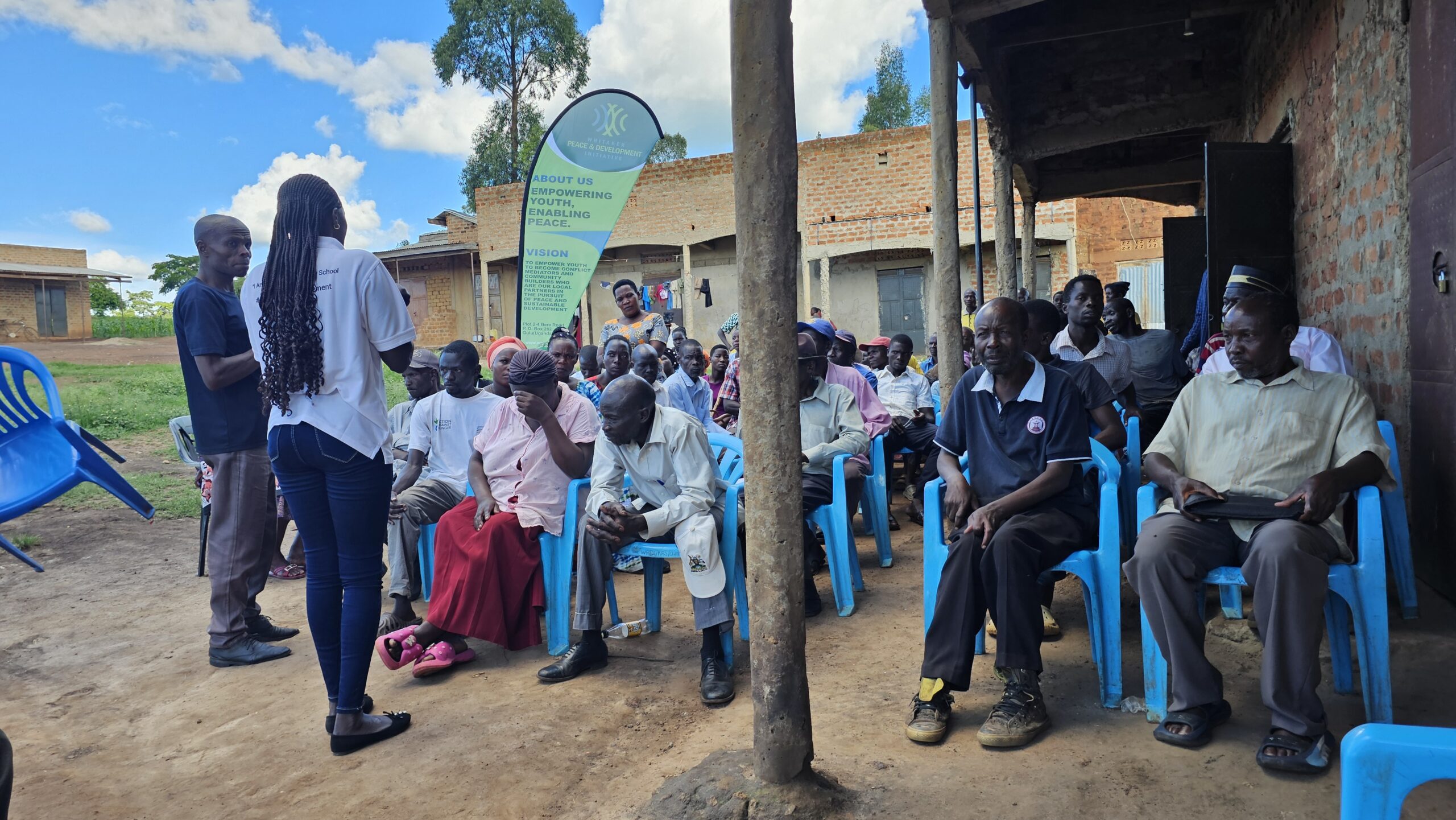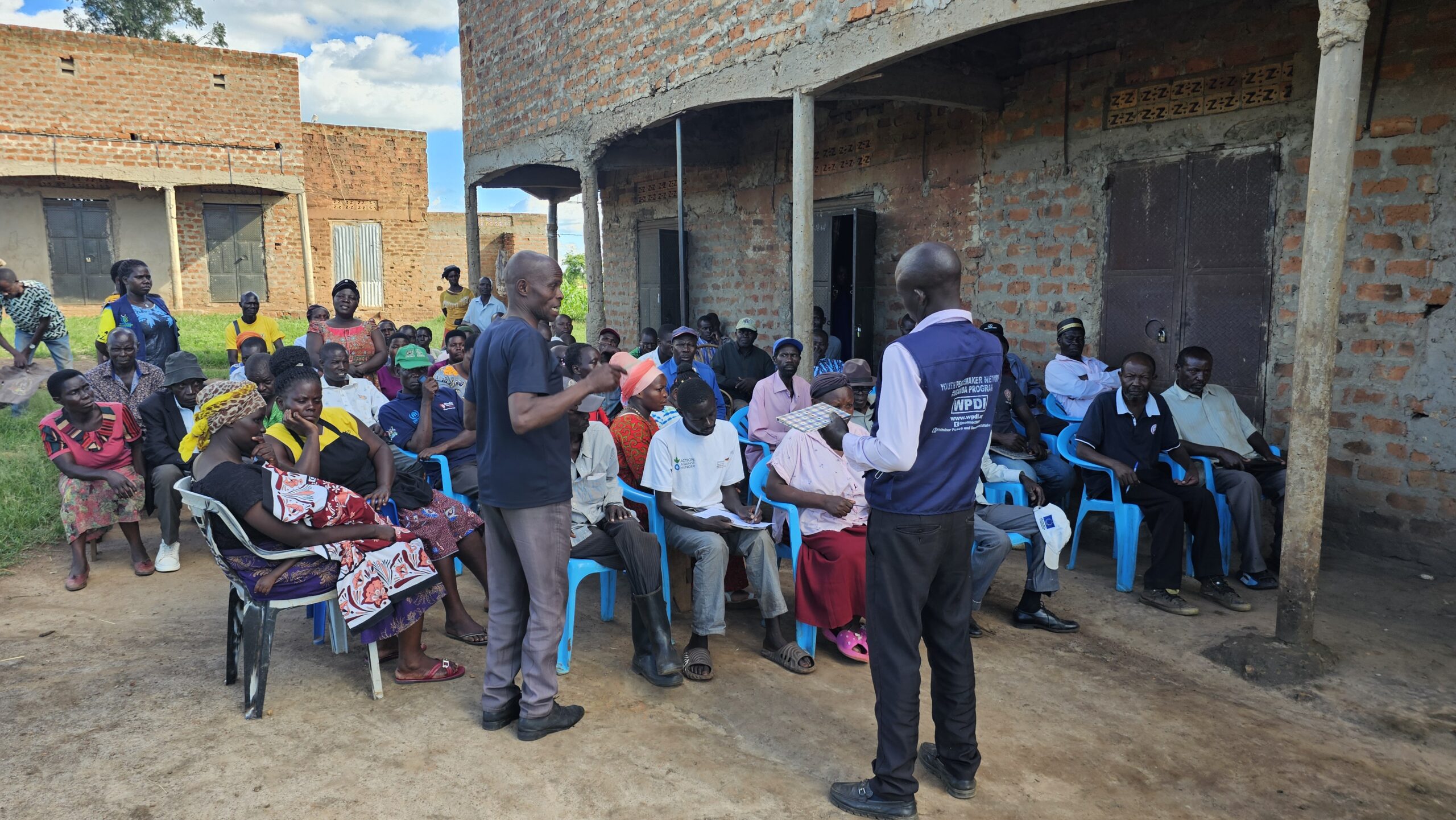
« Thanks to advocacy efforts, more parents now send their children to school, and girls who were once facing early marriage are back in class. »
October 1 2025 – In refugee settlements around the world, young girls often shoulder a heavy, invisible burden. They rise early to fetch water, care for younger siblings, prepare meals, and tend to the home. These daily responsibilities quietly erode their opportunity to attend school. Globally, girls and women perform 2.5 times more unpaid domestic and care work than boys and men, according to UN Women. In refugee contexts, these challenges are compounded by insecurity, lack of inclusive policies, strained education systems, and language barriers. UNHCR reports that more than 7.2 million refugee children (over half of all refugee children) are out of school entirely.
In the Kiryandongo Refugee Settlement in Uganda, these challenges are deeply familiar. But between February and June 2025, something began to change. WPDI launched a five-month advocacy campaign. This campaign was not just about protecting access to education and promoting the rights of girls, it was also about empowering the community to lead the change. It was about scaling up human rights awareness across the settlement. At the heart of the initiative was a simple but powerful idea: if communities are given the tools to lead, they can drive lasting change themselves.
Over 250 parents, youth, teachers, and community leaders took part in the campaign’s gatherings, which were held across several clusters of the settlement. Together, they reflected on how education – not just for boys, but for girls too – could transform their futures.

« Since the education advocacy began, more parents are enrolling their children, and dropout rates are dropping. Some even accompany children on their first day, » said Nakhwasi Rashid, a community leader from Panyadoli Hills. « Advocacy truly brings a positive impact to our community. »
For many families, especially those who had fled violence and instability, education had once seemed out of reach or a luxury. Some believed that girls were better off getting married early. Others kept children home to contribute to farming or care duties. But as the campaign unfolded, old assumptions were challenged.
« Thanks to advocacy efforts, more parents now send their children to school, and girls who were once facing early marriage are back in class, » shared Ruben Longoria Benson, a mother from Bududa Resettlement. The Bududa Resettlement is home to families who were displaced by mudslides in Eastern Uganda and later re-settled in Kiryandongo, where they now live alongside refugee and host communities. « We even formed a parents’ group to support education. Awareness opened our eyes, it’s never too late to change. »
The campaign didn’t impose solutions; it created a space for the community to listen to one another, share stories, and rebuild a collective sense of purpose. Advocacy sessions became moments of truth and reconciliation, with parents realizing the cost of keeping their daughters out of school and youth voicing their hopes for a different future.
« For years, we didn’t value education. Many kept children home for farming or believed girls didn’t need school, » said Kur Shida Kuch Kur from Cluster H. « But after the advocacy meetings, our views changed. We now see education as key to a better future, breaking poverty and making informed choices. »
These mindset shifts, though less visible than school buildings or handouts, are the foundation of real, lasting change. When parents begin walking their children to school, when girls return to class after years away, when neighbors form support groups to advocate for learning, that is the transformative power of education in action.
As WPDI looks ahead, the work in Kiryandongo serves as a reminder: true peace and development begin when communities come together, listen to one another, and believe in the power of education to unlock possibilities, especially for those who’ve been denied it the longest.
This program is made possible thanks to the financial support of a foundation that wishes to remain anonymous.